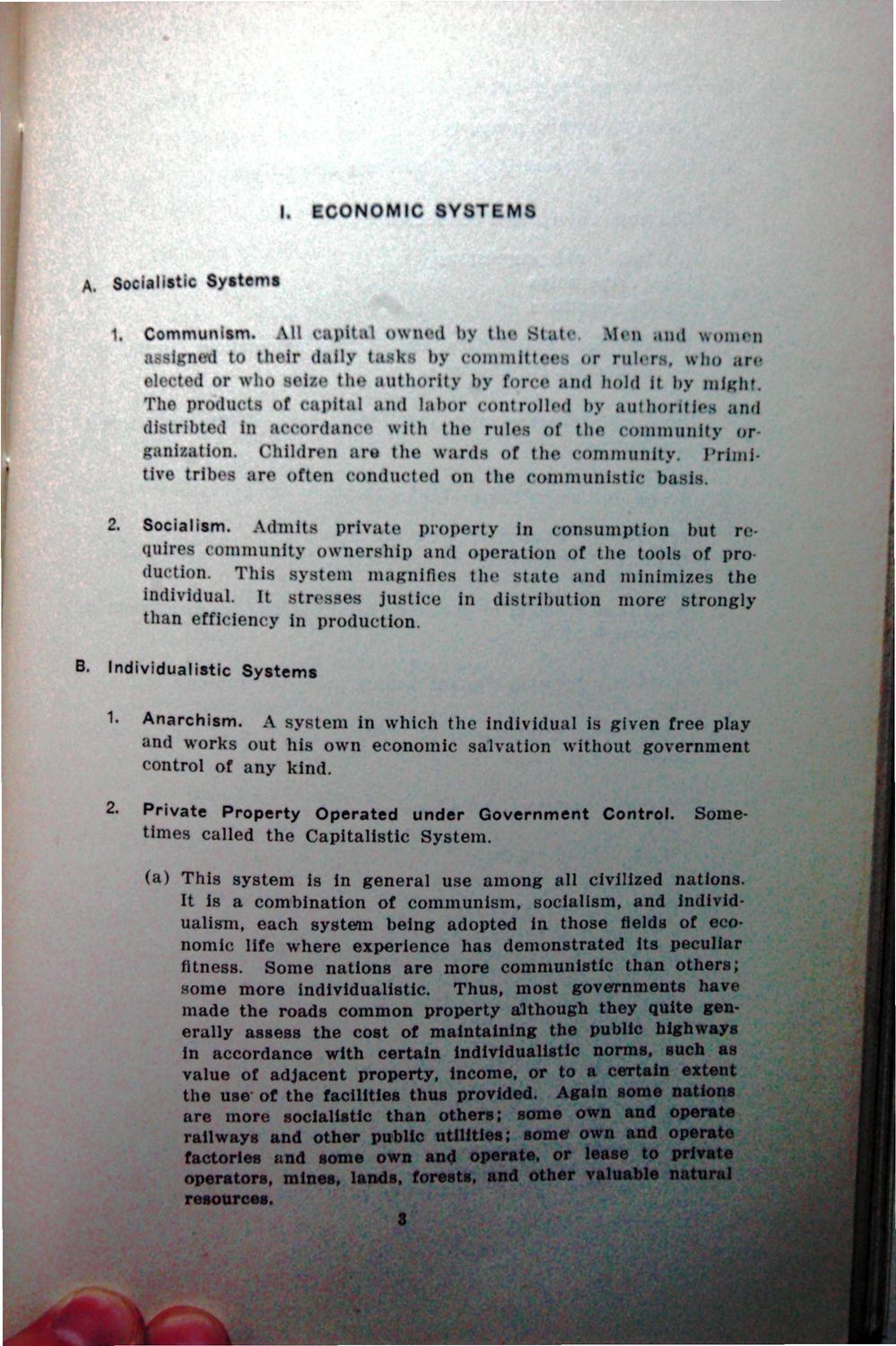| |
| |
Caption: War Publications - WWI Compilation 1923 - Article 47
This is a reduced-resolution page image for fast online browsing.

EXTRACTED TEXT FROM PAGE:
I. ECONOMIC SYSTEMS A. Socialistic Systems 1, Communism. A l l c a p i t a l o w n e d hy the S l . i i Mm and Women • ;i;ned to their daily task hy commit!ee > or rulers, who are elected or who setae the authority hy force and hold it hy might The products of capital and labor controlled by authorities and dislribted in accordance with the rules of the community organization. Children aru the wards of the community. Primitive tribes are often conducted on the communistic basis. 2. Socialism. Admits private property in consumption but requires community ownership and operation of the tools of production. This system magnifies the state and minimizes the individual. It stresses justice in distribution more* strongly than efficiency in production. B. Individualistic Systems 1. Anarchism. A system in which tlie individual is given free play and works out his own economic salvation without government control of any kind. Private Property Operated under Government Control. times called the Capitalistic System. Some- 2. (a) This system Is in general use among all civilized nations. It is a combination of communism, socialism, and individualism, each system being adopted in those fields of economic life where experience has demonstrated its peculiar fitness. Some nations are more communistic than others; some more individualistic. Thus, most governments have made the roads common property although they quite generally assess the cost of maintaining the public highways in accordance with certain individualistic norms, such as value of adjacent property, income, or to a certain extent the use of the facilities thus provided. Again some nations are more socialistic than others; some own and operate railways and other public utilities; some own and operate factories and some own an<J operate, or lease to private operators, mines, lands, forests, and other valuable natural resources. 8
| |